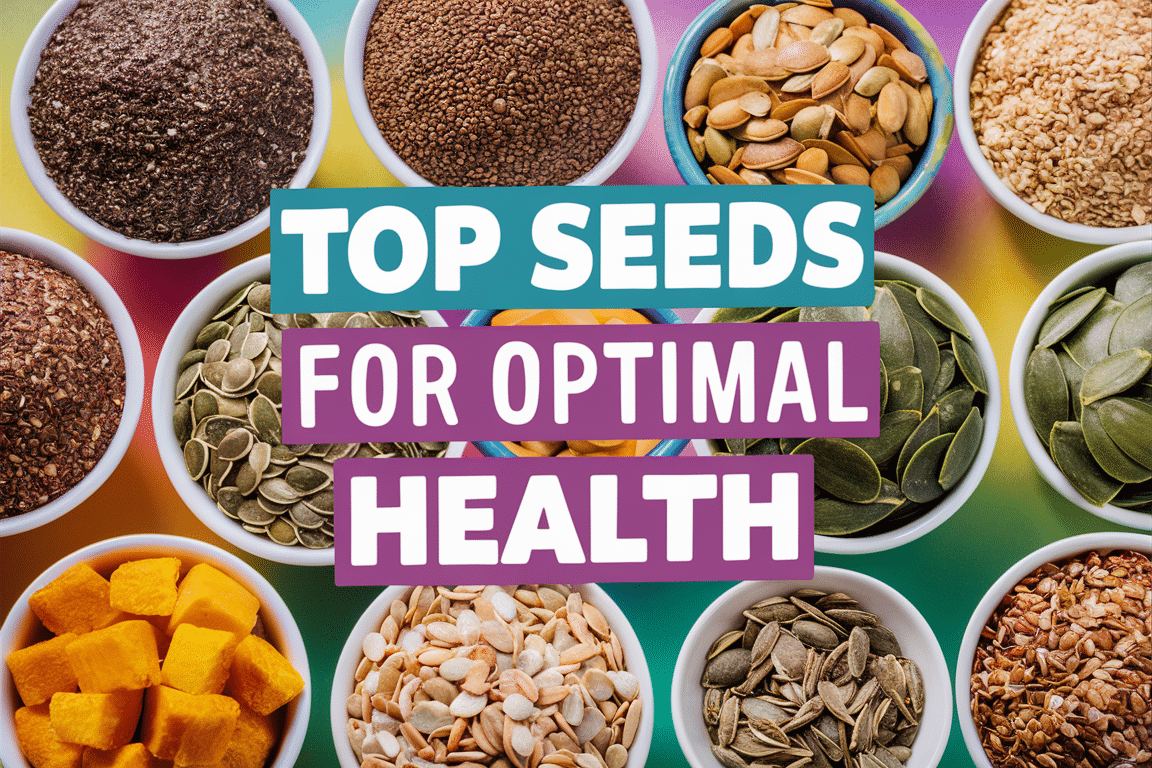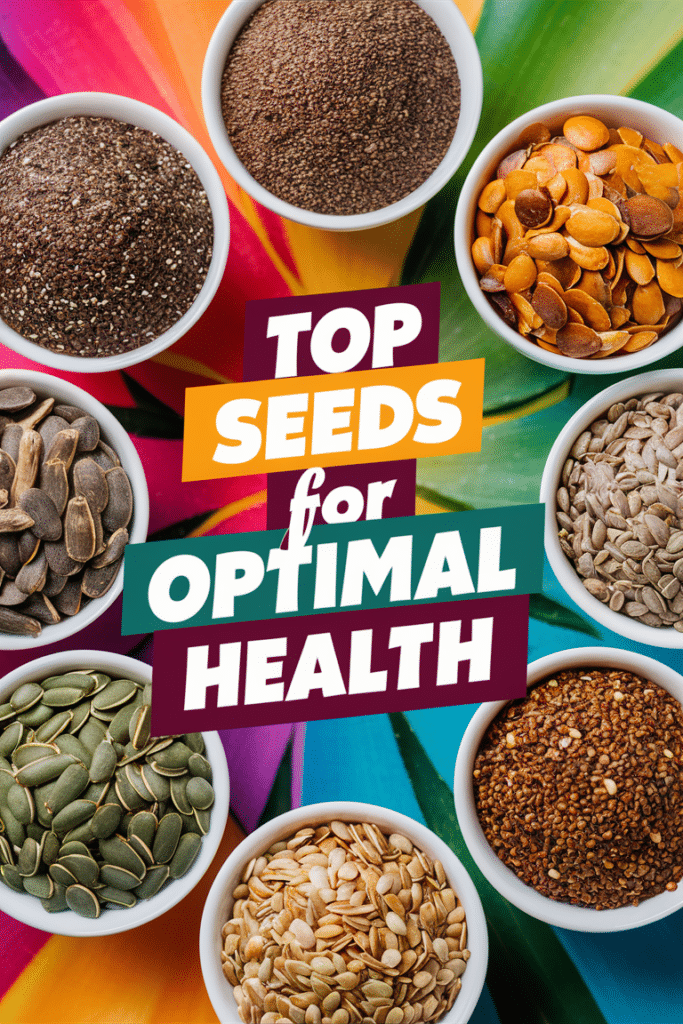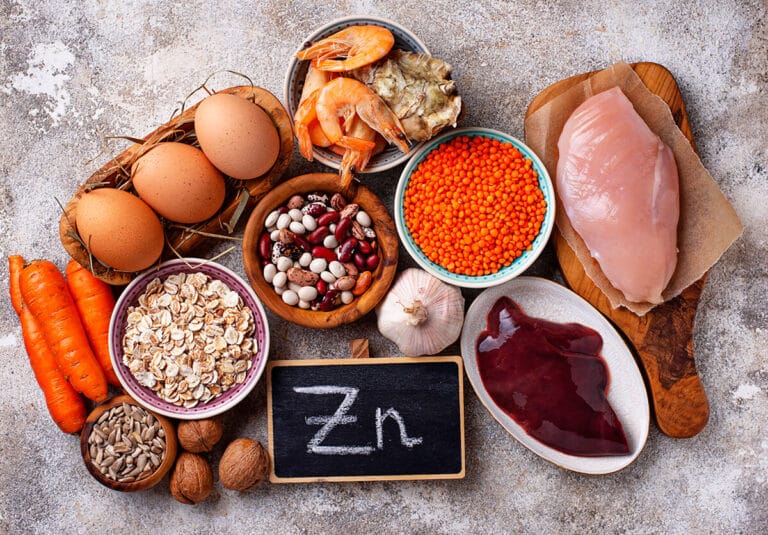Top 10 Best Seeds to Eat and Their Health Benefits

Incorporating a variety of seeds into your diet can boost your health. Chia and flax seeds are rich in omega-3s and support heart health. Sesame seeds offer key minerals like calcium and iron. Sunflower seeds provide vitamin E for antioxidants, while pumpkin seeds support prostate health. Hemp seeds give you a complete protein and ideal fat ratio. Poppy seeds improve digestion, and quinoa is a high-fiber complete protein. Cumin seeds aid digestion and improve cholesterol, while fennel seeds alleviate bloating and boost the immune system. Discover how these seeds can enhance your diet and well-being.

Chia Seeds
Chia seeds, rich in polyunsaturated fatty acids and essential vitamins, support cardiovascular health and overall well-being. When you incorporate these tiny seeds into your diet, you’re giving your heart a boost. The polyunsaturated fatty acids in chia seeds help lower blood cholesterol levels, promoting heart health. Additionally, they enhance immune function, guaranteeing your body can fight off illnesses more effectively.
Chia seeds are incredibly nutrient-dense, providing 486 kcal energy, 16.5g protein, and 34.4g fiber per 100g serving. This makes them an excellent choice for anyone looking to improve their overall health. They’re also packed with essential vitamins and minerals like calcium, potassium, and folic acid, which contribute to various bodily functions and enhance your well-being.
The anti-inflammatory properties of chia seeds can help reduce inflammation in your body, supporting overall health. By including chia seeds in your diet, you can experience improved digestion, stable blood sugar levels, and reduced inflammation. These benefits combine to make sure you feel healthier and more energetic.
Flax Seeds
Just like chia seeds, flax seeds are packed with nutrients that can greatly enhance your health. Rich in omega-3 fats, flax seeds are essential for heart health and reducing inflammation. You’ll find that ground flaxseeds are the best way to maximize omega-3 absorption in your body, ensuring you get the most out of this nutrient powerhouse.
Each serving of flax seeds contains 152 calories, 7.8 grams of fiber, and 5.2 grams of protein. This combination not only supports digestion but also helps you feel full longer. The high fiber content is especially beneficial for maintaining healthy cholesterol levels, which is pivotal for heart health.
Flax seeds are also abundant in lignans, powerful antioxidants that play a significant role in lowering cholesterol levels and reducing cancer risk. These antioxidants combat oxidative stress, offering a protective effect against certain cancers.
Regular consumption of flax seeds may contribute to a decreased risk of certain cancers, thanks to these lignans and other beneficial compounds. By incorporating flax seeds into your diet, you’re not just adding a versatile ingredient but also a potent source of nutrition that supports overall well-being.
Sesame Seeds
When you incorporate sesame seeds into your diet, you’ll be adding a nutrient-rich ingredient that offers numerous health benefits. Sesame seeds contain a wealth of essential minerals such as calcium, copper, iron, magnesium, manganese, selenium, thiamine, and zinc. They’re also a great source of omega-6 fatty acids, which are essential for your overall health.
One of the standout nutrients in sesame seeds is their high content of lignans, particularly sesamin and sesamolin. These compounds have been linked to remarkable cardiovascular benefits. For example, they can convert to enterolactone, which supports heart health and helps in reducing cholesterol levels.
The health benefits of sesame seeds extend further:
- Rich in protein and fiber: A serving provides 5g of protein and 3.3g of fiber, aiding in muscle repair and digestive health.
- Anti-inflammatory properties: They help in reducing inflammation and protecting against oxidative stress.
- Improved hormone balance: Consuming sesame seeds has been associated with better sex hormone status.
- High phytosterol content: This contributes to lowering cholesterol and improving heart health.
Sesame oil, derived from these seeds, also provides similar nutrients and health benefits, making it a versatile addition to your kitchen.
Sunflower Seeds
After exploring the benefits of sesame seeds, it’s time to look at the nutrient-packed powerhouse that’s sunflower seeds. Sunflower seeds contain a wealth of nutrients that are essential for your overall well-being. Rich in protein, these seeds provide essential amino acids your body needs for muscle repair and growth. They also contain monounsaturated fats and omega-3 fatty acids, which are vital for improving heart health.
One of the standout benefits of sunflower seeds is their ability to lower blood cholesterol. Thanks to their high phytosterol content, these seeds help reduce cholesterol absorption in your body. Additionally, the presence of magnesium aids in lowering blood pressure, making them an excellent choice for cardiovascular health. If you’re looking to lower blood sugar levels, sunflower seeds can be a helpful addition to your diet.
Vitamin E found in sunflower seeds offers powerful antioxidant benefits, protecting your cells from damage and reducing inflammation. This vitamin, combined with other nutrients like selenium, supports your immune system and overall well-being.
Incorporating sunflower seeds into your daily routine can be a simple yet effective way to boost your nutrient intake and support a healthy lifestyle.
Pumpkin Seeds
Pumpkin seeds are a nutrient-dense superfood that can greatly enhance your diet and overall health. These little powerhouses offer 151 calories, 7 grams of protein, and 37% of your daily recommended intake of magnesium per serving.
Rich in phytosterols, pumpkin seeds help lower blood cholesterol levels and reduce the risk of heart disease. With their high content of monounsaturated fats and omega-6 fats, they also support heart health and improve cholesterol levels. If you’re looking to support your prostate and urinary health, pumpkin seed oil has been shown to alleviate symptoms of prostate and urinary disorders.
Studies even suggest that a diet rich in pumpkin seeds may reduce the risk of breast cancer and bladder stones. Here are some of the top benefits:
- Heart Health: Rich in phytosterols, monounsaturated fats, and omega-6 fats, which help lower blood cholesterol levels and reduce the risk of heart disease.
- Prostate and Urinary Health: Pumpkin seed oil can improve symptoms of prostate and urinary disorders.
- Cancer Prevention: High intake may reduce the risk of breast cancer.
- Bladder Health: May help prevent bladder stones.
Incorporating pumpkin seeds into your diet is a small change with big health benefits.
Hemp Seeds
Hemp seeds are an incredibly nutritious addition to any diet, offering a complete plant-based protein source and essential fatty acids. These small seeds pack a punch with all the essential amino acids you need for muscle maintenance and growth. Each serving provides 8.8 grams of protein, helping you meet your daily protein requirements, especially if you follow a plant-based diet.
One of the standout features of hemp seeds is their ideal omega-6 to omega-3 ratio of 3:1. This balance of polyunsaturated fats is important for heart health and inflammation control. Consuming hemp seeds can help lower the risk of heart disease and manage chronic inflammation, making them a smart choice for overall well-being.
Hemp seeds are also rich in various nutrients, offering 155 calories and 10.7 grams of polyunsaturated fats per serving. These nutrients support various bodily functions and contribute to a balanced diet. By incorporating hemp seeds into your meals, you’re not only enhancing the flavor but also boosting your intake of essential nutrients.
Poppy Seeds
Poppy seeds are tiny powerhouses packed with essential nutrients that can greatly enhance your health. These little seeds are loaded with fiber, which is important for maintaining digestive health and ensuring bowel regularity. They’re also a fantastic source of minerals like calcium, iron, and magnesium, all of which are essential for bone health and overall well-being.
Incorporating poppy seeds into your diet can bring numerous benefits. Here are a few key advantages:
- Antioxidants: Poppy seeds are rich in antioxidants that help reduce inflammation and protect your cells from damage.
- Heart health: These seeds support heart health by helping maintain healthy cholesterol levels and blood pressure.
- Antimicrobial benefits: Poppy seeds have properties that can help fight off harmful bacteria and viruses.
- Digestive health: The high fiber content in poppy seeds promotes good digestive health and helps prevent constipation.
Including poppy seeds in your meals can be a simple yet effective way to boost your nutrient intake. Whether you sprinkle them on your salad, mix them into your yogurt, or use them in baking, you’ll enjoy their health-enhancing properties and delightful crunch.
Quinoa
When it comes to finding a nutritious powerhouse, quinoa is a standout choice. With its complete protein source and abundance of essential nutrients, quinoa is a great option for muscle repair and growth, thanks to its inclusion of all nine essential amino acids.
Its high fiber content also promotes digestive health and aids in weight management by keeping you feeling satisfied for longer periods.
Aside from its protein and fiber content, quinoa is packed with vital vitamins and minerals such as iron, magnesium, and zinc, which contribute to overall health and strengthen your immune system.
Moreover, quinoa is gluten-free, making it an excellent selection for individuals with gluten intolerance or celiac disease.
The versatility of quinoa is another key feature. It can be seamlessly incorporated into a variety of dishes, enhancing both the nutritional value and taste of your meals. Whether you choose to include it in salads, soups, breakfast bowls, or even desserts, quinoa adapts well to different recipes.
Cumin Seeds
While quinoa provides a wealth of nutrients, cumin seeds offer unique health benefits that shouldn’t be overlooked. Packed with antioxidants and essential oils, cumin seeds are excellent for aiding digestion and boosting liver function. Regular consumption can help relieve symptoms of the common cold, like congestion and sore throat, making them a cornerstone in your wellness routine.
Cumin seeds are also rich in iron, which is crucial for maintaining healthy blood. The beneficial plant compounds found in these seeds can improve blood cholesterol levels and reduce inflammation. Whether you’re dealing with digestive issues or looking to enhance your immune system, cumin seeds can play a significant role in your overall health.
Here’s why you should consider adding cumin seeds to your diet:
- Aid Digestion: The antioxidants and essential oils in cumin seeds help improve digestive health.
- Boost Liver Function: These seeds support liver detoxification and overall function.
- Relieve Common Cold Symptoms: The natural compounds in cumin seeds can alleviate congestion and sore throat.
- Rich in Iron and Plant Compounds: Essential for blood health, they also help reduce inflammation and improve cholesterol levels.
Incorporating cumin seeds into your meals can be both delicious and beneficial for your health.
Fennel Seeds
Often overlooked, fennel seeds are a powerhouse of nutrients that can greatly enhance your health. Rich in fiber, these seeds aid digestion and help alleviate bloating, gas, and indigestion. The essential oils in fennel seeds have carminative effects, making them perfect for soothing your digestive system.
Additionally, fennel seeds are packed with antioxidants, which help reduce inflammation and protect your cells from damage. Incorporating fennel seeds into your diet guarantees you get a good dose of essential minerals like potassium, calcium, and magnesium. These minerals are vital for maintaining heart health and strengthening your bones.
Vitamin C in fennel seeds boosts your immune system and promotes healthy skin. Another impressive benefit of fennel seeds is their antimicrobial properties. They help promote oral health by fighting harmful bacteria in your mouth, helping to reduce bad breath and the risk of dental issues.
Whether you sprinkle them on your dishes, brew them into a tea, or use them in herbal remedies, fennel seeds offer a unique flavor and a multitude of health benefits. So, don’t hesitate to add these tiny yet powerful seeds to your daily routine.
Frequently Asked Questions
What Is the Healthiest Seed You Can Eat?
You’re wondering about the healthiest seed to eat. Chia seeds are a top contender due to their high fiber, omega-3s, and protein. They’re incredibly versatile and can easily boost your diet’s nutritional value.
What Super Seeds Should I Eat Daily?
You should eat chia, flax, hemp, pumpkin, and sesame seeds daily. They provide essential nutrients like omega-3s, fiber, protein, and minerals, which support heart health, reduce inflammation, improve digestion, and boost your immune system.
What Seeds Are Good for Your Gut?
You should eat chia, flaxseeds, pumpkin, sunflower, and sesame seeds for gut health. They’re packed with fiber, promoting digestion and regular bowel movements. Including these seeds in your diet helps maintain a healthy digestive system.
How to Eat Seeds for Maximum Benefits?
To eat seeds for maximum benefits, grind flaxseeds, soak chia seeds, sprinkle pumpkin seeds, toast sesame seeds, and snack on sunflower seeds. Each method enhances nutrient absorption and adds flavor to various dishes.
Conclusion
Incorporating seeds into your diet is one of the easiest ways to boost your health.
Chia seeds, flax seeds, and quinoa can improve heart health and digestion.
Sunflower, pumpkin, and sesame seeds provide essential nutrients and antioxidants.
Don’t forget poppy, cumin, and fennel seeds for their unique flavors and additional health perks.
So, sprinkle these nutrient-packed powerhouses onto your meals and snacks—you’ll feel the benefits in no time!






